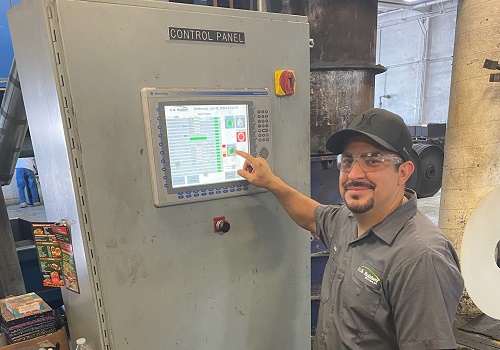Amid the ongoing COVID-19 pandemic and Great Resignation, it’s harder than ever for businesses to hire the right people. As a business leader I am well acquainted with the fierce competition employers across the country face, particularly when hiring logistics, manufacturing, and construction workers. I’m steeped in it every day.
But at U.S. Rubber in Colton, Calif., we have a not-so-secret weapon in the quest for talent, one that has helped our business manufacturing sustainable rubber fitness flooring and acoustical underlayment grow by over 100 percent since the pandemic began. That weapon is second-chance hiring. It could help other companies grow, too.
Opportunity on the table
Nearly 70 million Americans have a criminal record that traps them in a cycle of unemployment and poverty, even after they’ve paid their debt to society. This cycle can result in recidivism, which harms local communities and economies.
I understand why businesses are hesitant to integrate formerly incarcerated people into their teams: Stigmas abound, and success depends on creating a welcoming culture and investing in support strategies. But, by hiring from this massive pool of untapped talent, teams gain eager new members who are motivated to turn their lives around.
We regularly hire second-chance workers through our Bounce Back! program. In fact, 50 percent of our current employees were once incarcerated. With them on board, and with their help, we have increased productivity by 30 percent.
Building a positive environment
U.S. Rubber operates on the belief that most people deserve a second chance. That means making significant investments into building a supportive work environment where all employees can thrive.
Among our team, we encourage managers and employees to eliminate any preconceived notions about who can succeed. We give our employees the freedom to make mistakes and learn without micromanagement. And we offer everyone a seat at the table to ask questions and make suggestions.
One of our most successful personnel investments was in hiring a psychiatric rehabilitation counselor who screens all incoming candidates and meets confidentially with employees to address any challenges they’re experiencing in and outside the workplace.
Many victories are hard-won
No success story is inevitable, though. For every employee who finds success with our company, there are several who don’t work out. Many formerly incarcerated people leave prison without a support system, a savings account, a home or hope.
Some who find the courage to apply for a job with us seem like they’re a good fit for the team at first, but after three to six months ultimately return to self-destructive behaviors that cost them their job. Turning one’s life around is emotionally challenging and some struggle to build a new identity outside of prison, especially if they face addiction or other mental health challenges.
But the success stories make it all worthwhile. We’ve brought on plenty of formerly incarcerated people whom, on paper, it made no sense to hire, but who ended up exceeding our expectations and their own. Our second-shift manager, Carlos Arceo, is one example. Prior to working with us, he’d never had a job. Now he’s supporting his family, saving to buy a house and acting as a mentor to our newer second-chance recruits.
Benefits and getting started
The most obvious benefit of second-chance hiring is the ability to fill open positions so our business can grow, especially amid widespread labor shortages. Beyond that, we see immense value in having a purpose beyond making money and a high-quality product. Bounce Back! offers a rallying cry to employees, customers and others who want to support companies that are making a difference.
More and more businesses are beginning to see these advantages. As evidence, some of the largest companies in the country have formed the Second Chance Business Coalition, which offers resources to business owners interested in launching their own program.
We owe much of our success to the investments we made in our Bounce Back! program, and we encourage other businesses to consider the benefits of doing the same: Growing a team of smart, highly motivated individuals who are proud to contribute to something greater than the product or service their company provides; expanding the business’s visibility to new audiences; and growing as a result.
Jeff Baldassari is CEO of U.S. Rubber in Colton, Calif., a triple-bottom-line business that manufactures high-quality fitness flooring and acoustical underlayment, giving discarded tires a second life and providing employment to a second-chance workforce.


